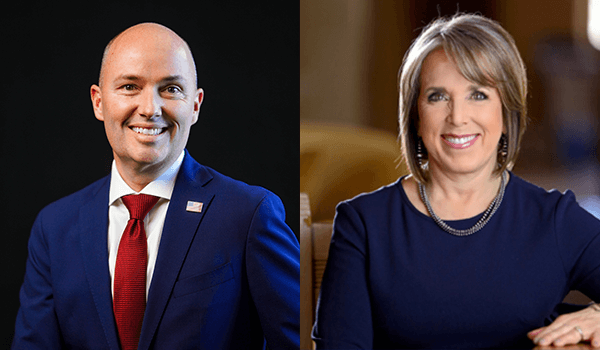High color complexity in social media images proves more eye-catching, increases user engagement

Social media has become the main stage for marketing in the digital age, and the adage “content is king” has never been more relevant.
Marketers are increasingly focused on creating social media content to capture user attention and drive engagement with content. One proven strategy to increase such engagement is using social media images. A 2021 report by the social media management software company Sprout Social found that nearly 53 percent of content marketers consider images crucial for achieving their social media goals, and approximately 70 percent of social media users prefer interacting with image-based posts over text-only content.
Despite this clear preference for social media images, there has been little research about which specific image characteristics most effectively boost user engagement and when that engagement takes place. A new study from the University of Notre Dame addresses how color complexity affects user engagement on social media.
Posts containing complex images with more varied color patterns tend to capture greater user attention and lead to increased engagement, according to lead author Vamsi Kanuri, the Viola D. Hank Associate Professor of Marketing at Notre Dame’s Mendoza College of Business. Kanuri’s findings, “Standing out from the crowd: When and why color complexity in social media images increases user engagement,” were recently published in the International Journal of Research in Marketing.
Along with Christian Hughes from Case Western Reserve University and Brady Hodges from the University of Missouri, Kanuri examined color complexity — measured as the variation in colors across pixels in an image. Images with higher color variation require more cognitive processing, hence they are perceived to be more complex than those with lower color variation.

The significance of color in marketing is well documented, influencing everything from brand perception to purchase intentions. However, the particular role of color complexity in social media engagement had not been explored before Kanuri and his team turned their attention to it.
Using advances in computer vision algorithms to measure color complexity and the biometric eye-tracking method to study attention, this research explores whether and how varying levels of color complexity can enhance user engagement with social media images.
“We find that more complex images in a social media post tend to capture greater user attention, leading to increased engagement with those posts,” said Kanuri, who specializes in digital and multichannel marketing. “This supports the notion that higher color complexity can be beneficial.”
The team also uncovered several nuances of color complexity that marketers should consider as they work to maximize user engagement.
First, the effectiveness of color complexity varies based on several factors. For instance, posts made later in the day and those featuring longer images that take up more screen space on the viewing device tend to accentuate the effect of color complexity. This suggests the timing and visual prominence of posts influence how well images with certain color complexity can maximize engagement.
Conversely, the study found color complexity is less effective at driving user engagement when images are paired with text containing negative sentiments. This highlights the importance of the accompanying text’s tone and how it can affect the perception of even well-designed images.
“Interestingly, we also found that complex text accompanying an image in a social media post can actually strengthen the link between color complexity and user engagement, contrary to initial expectations,” Kanuri said. “This counterintuitive finding suggests more intricate textual content might encourage users to pay more attention to the images.”
The study found that using larger images with greater color complexity later in the day and accompanied by complex text containing positive sentiments leads to maximum user engagement.
For marketers and content creators, the implications are clear, Kanuri said. “Investing in the careful curation of social media images — especially those with high color complexity — can lead to better user engagement. It’s crucial to align image characteristics with other post features and to be mindful of the timing and context of social media interactions.”
Kanuri encourages marketers to integrate these insights into their content strategies and continue to learn about factors that influence how users interact with their posts. “By doing so, they can optimize their social media presence and achieve greater success in their digital marketing efforts,” he said.
Contact: Vamsi Kanuri, 574-631-2399, vkanuri@nd.edu
Latest ND NewsWire
- Notre Dame to host summit on AI, faith and human flourishing, introducing new DELTA frameworkThe Institute for Ethics and the Common Good and the Notre Dame Ethics Initiative will host the Notre Dame Summit on AI, Faith and Human Flourishing on the University’s campus from Monday, Sept. 22 through Thursday, Sept. 25. This event will draw together a dynamic, ecumenical group of educators, faith leaders, technologists, journalists, policymakers and young people who believe in the enduring relevance of Christian ethical thought in a world of powerful AI.
- Notre Dame Democracy Initiative hosts bipartisan conversation with Western state governorsTwo Western state governors known to work across the aisle on policy issues such as water, housing and energy will visit the University of Notre Dame for a fireside chat about how Western state pragmatism can serve as a model for the country to overcome polarization.
- In new research, Roy Scranton explores climate change and the limits of human progressIn his most recent book, “Impasse: Climate Change and the Limits of Progress,” Scranton, an associate professor of English, defines the impasse he sees as “not only political and institutional, but cognitive, existential and narrative” and asserts that the only path forward is through embracing what he terms ethical pessimism. “A lot of people confuse pessimism with nihilism, apathy and despair,” Scranton said. “But pessimism is actually about recognizing our limits, letting go of unrealistic goals, finding solidarity in the fact of human suffering and doing what you can now, not in some utopian future.
- Notre Dame MBA launches deferred admission programThe Notre Dame MBA Deferred Admission Program allows candidates with little or no work experience, including college seniors, to secure admission before reaching the recommended three years of work experience to enroll.
- ‘Prebunking’ false election claims may boost trust in electionsIn recent years, democracies worldwide have seen a growing erosion of trust in election outcomes and institutions, driven in part by fears of widespread fraud. New Notre Dame research finds that “prebunking” — providing accurate information before false claims spread — boosts trust in elections more effectively than traditional fact-checking.
- ND experts on the canonization of Carlo AcutisAs the Church awaits the ceremony in St. Peter’s Square, where Pope Leo XIV will formally declare Acutis a saint, University of Notre Dame experts Kathleen Sprows Cummings, Brett Robinson and Timothy O’Malley reflect on his life and his path to sainthood.













